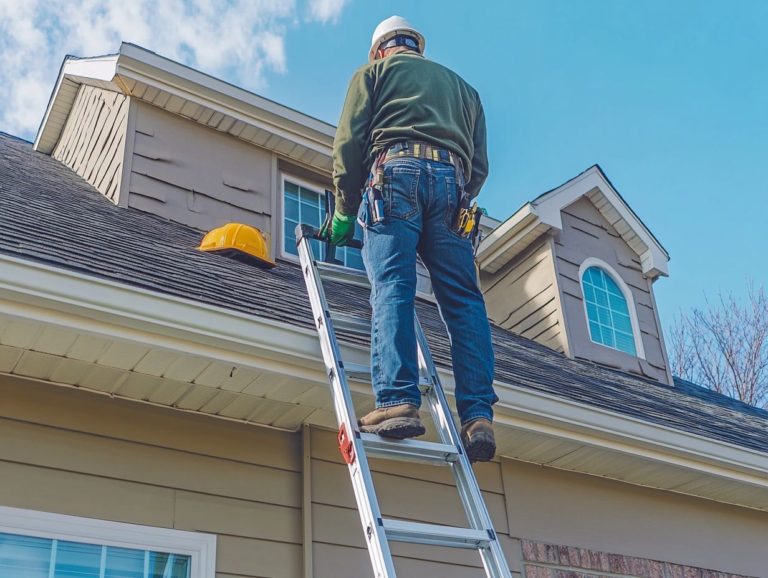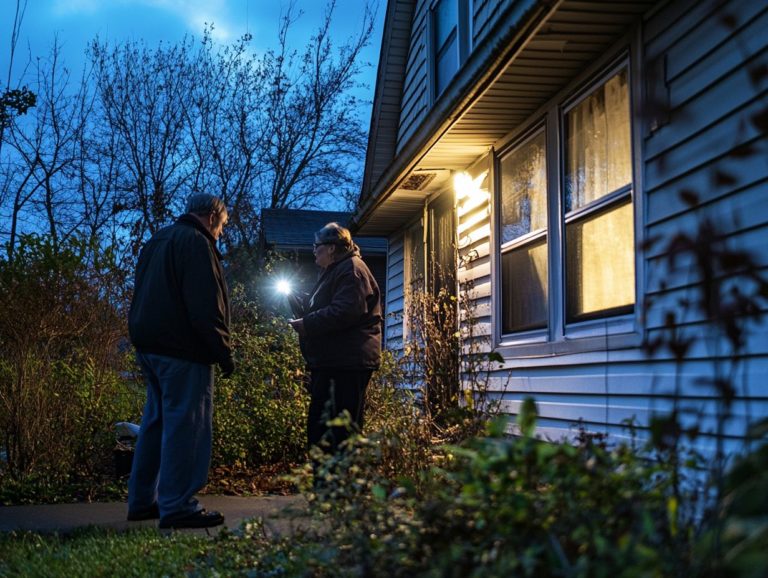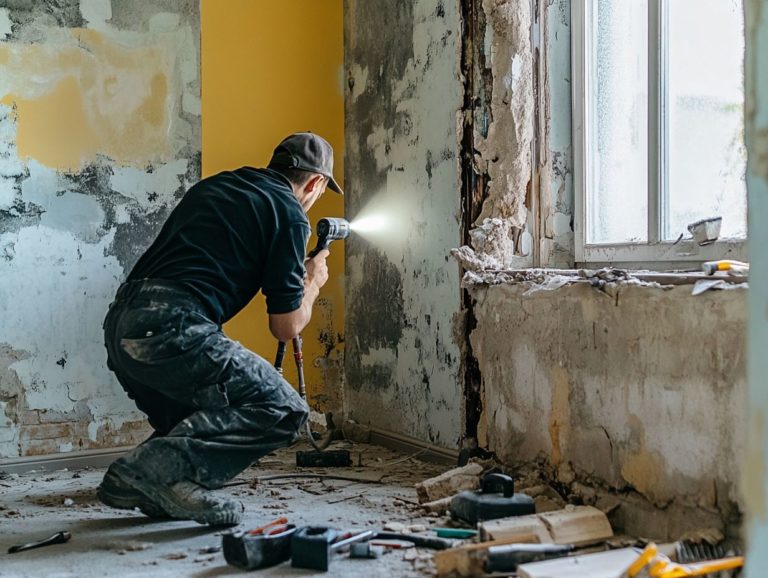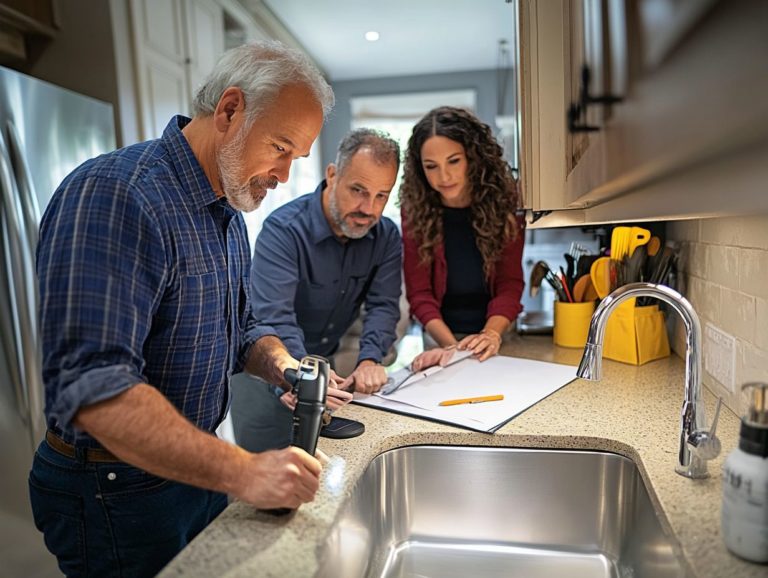How Weather Affects Home Inspections
When it comes to home inspections, you might be surprised at just how influential the weather can be.
From sweltering heat to torrential rain and heavy snow, varying conditions can greatly affect both the process and the results of an inspection. By understanding how different weather patterns impact various aspects of a home from the roof down to the foundation you can better anticipate potential issues, whether you re a buyer or a seller.
This article delves into the myriad ways weather influences home inspections and provides practical tips for navigating these challenges.
Whether you re a homeowner, a buyer, or an inspector, this guide will arm you with the knowledge needed to ensure a comprehensive evaluation, no matter what the forecast holds.
Contents
Key Takeaways:
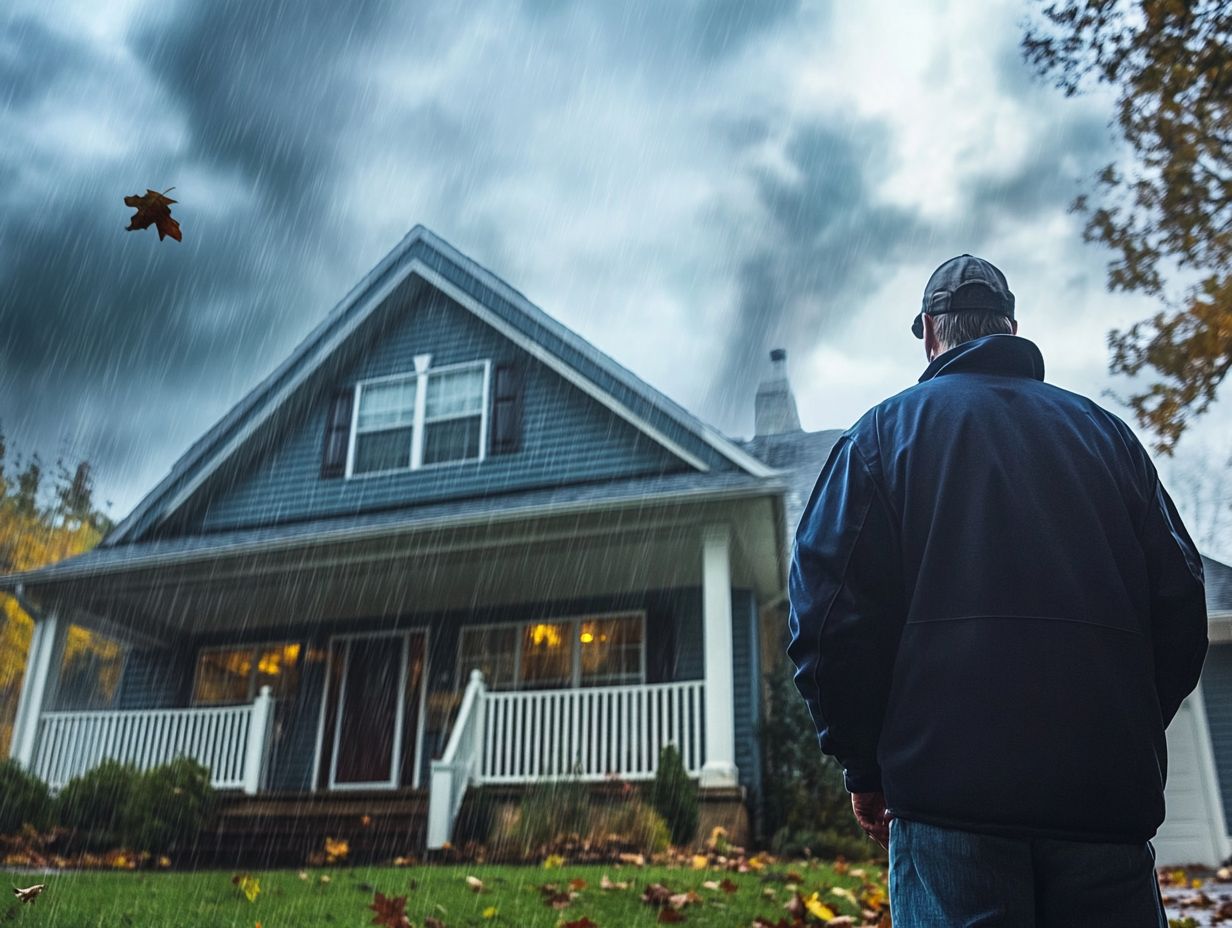
Weather can greatly impact the results of a home inspection, from extreme temperatures to heavy rain or snow. Home inspectors must consider weather conditions to evaluate a property effectively.
Different parts of a home can be affected by weather in different ways, such as the roof and attic, foundation and basement, and exterior surfaces. Home inspectors should pay special attention to these areas during inspections.
To conduct a thorough home inspection in varying weather conditions, inspectors should have strategies and adjustments in place. This includes strategies for extreme weather and adjustments for different seasons.
The Role of Weather in Home Inspections
Understanding the role of weather in home inspections is essential, as various weather factors significantly influence the effect on the property.
Temperature extremes, humidity levels, and the risks associated with flooding or storm damage all play a part in affecting the strength and safety of a home s structure.
Different soil conditions and landscaping can complicate your assessment during inspections. It is necessary to grasp historical weather patterns in both urban and rural settings.
Your ability to adapt inspection techniques based on seasonal variations and air quality is crucial for ensuring accurate evaluations.
Why Weather Matters in Home Inspections
Weather plays a critical role in home inspections, influencing numerous aspects of a property’s effect on the property. Factors such as humidity, temperature fluctuations, and precipitation can dramatically alter the condition of a home, both inside and out.
For instance, excessive moisture can create a perfect breeding ground for mold and mildew, while extreme temperatures can hasten structural deterioration.
Seasonal variations, especially during heavy rains or freezing conditions, can unearth hidden vulnerabilities in roofing and foundations, potentially leading to costly repairs if not promptly addressed.
Thus, it’s crucial for inspectors to tailor their techniques according to the prevailing weather conditions. This adaptability ensures a comprehensive evaluation, giving you the power to make informed decisions that will benefit future homeowners.
Weather Conditions That Can Impact Inspections
Several weather conditions can greatly influence the effectiveness of your home inspections.
Temperature extremes, heavy rain, snow, and high winds each present unique challenges that can affect the thoroughness and accuracy of the process.
Being aware of these factors can help you prepare better and ensure a comprehensive evaluation of your property.
Extreme Temperatures
Extreme temperatures can present serious challenges during home inspections, impacting everything from the structural integrity of materials to the performance of heating, ventilation, and air conditioning systems.
When the mercury rises or plunges, materials such as wood, metal, and insulation tend to expand or contract, potentially creating gaps or stress points. This can lead to compromised insulation effectiveness, which may hinder temperature regulation throughout the property.
Meanwhile, heating, ventilation, and air conditioning systems might find it difficult to maintain optimal performance under these extreme conditions, resulting in increased energy inefficiency and discomfort. It s crucial for inspectors to recognize these variations and adjust their techniques accordingly.
By considering how thermal extremes affect not only the physical structures but also the systems that control a home’s environment, inspectors can help ensure overall property safety. Be ready to adapt your inspection methods. Your proactive approach can prevent future issues!
Heavy Rain or Snow
Heavy rain and snow present critical weather conditions that can pose considerable challenges during home inspections. Flooding is a primary concern.
When such extreme weather events strike, they can overwhelm drainage systems, leading to water accumulation around the foundation and even inside your home. This sudden influx of moisture not only carries an immediate risk of flooding but also sets the stage for long-term issues like water damage, mold growth, and compromised structural integrity.
Wet soil can weaken your yard and plants, contributing to erosion.
To mitigate these risks, skilled inspectors employ specialized techniques to thoroughly examine drainage systems and check waterproofing measures. This diligent approach ensures that you remain fully aware of any vulnerabilities that could amplify the impact of heavy precipitation.
High Winds

High winds can pose considerable risks to your home, leading to storm damage that might not be immediately apparent during inspections. These intense gusts can tear shingles from roofs, loosen siding, and even uproot large trees, presenting a significant threat to your property.
You must inspect your home carefully after storms to catch hidden damage. Look for subtle signs of damage like warped siding, missing roofing materials, or downed branches that could compromise safety.
Using a checklist or enlisting professionals who understand local wind patterns can greatly assist you in identifying issues early on. By grasping these patterns, you re not just engaging in proactive maintenance; you re also making informed decisions about repair and fortification strategies that will enhance your home s resilience against future storms.
How Weather Can Affect Different Parts of a Home
Weather can profoundly impact various aspects of your home, including the roof, attic, foundation, basement, and exterior surfaces. This exposure can lead to problems that require a thorough inspection to ensure everything remains in optimal condition.
Roof and Attic
The roof and attic are pivotal areas during home inspections, as they face the brunt of weather elements like rain, snow, and high winds, leaving them vulnerable to storm damage. It s essential for you to conduct thorough inspections, not just to check for leaks, but also to evaluate the overall structural integrity and functionality of the attic’s ventilation systems.
Proper ventilation is key to regulating temperature and moisture levels, minimizing the risk of condensation that could compromise the roof’s materials. Insulation plays a crucial role in this process, ensuring that temperature fluctuations do not lead to issues like ice damming or mold growth.
A combination of inadequate insulation and harsh weather conditions can significantly escalate problems like mold and mildew, jeopardizing the overall health and safety of your home.
Foundation and Basement
The foundation and basement of your home are particularly susceptible to environmental factors, especially flooding from heavy rain or snowmelt. These conditions can trigger soil erosion, destabilizing the ground beneath and increasing the risk of shifting or sinking.
When water accumulates, it can seep through cracks, worsening moisture problems that threaten your home s structural integrity. Extreme temperature changes can lead to cracks in your foundation due to the freeze-thaw cycle.
To mitigate these risks, you should regularly inspect your property for early signs of moisture accumulation or damage in your basement. Look for water stains and musty odors.
Employing techniques like visual assessments and simple tools that measure how much water is in the air or ground can help you identify underlying issues before they spiral into costly repairs.
Exterior Surfaces
The exterior surfaces of your home are significantly impacted by weather conditions, making them a crucial area to focus on during inspections for signs of wear and potential issues. Elements like rain and snow can lead to moisture buildup that fosters mold growth, while strong winds might cause paint to chip or peel.
This not only diminishes your property s curb appeal but can also undermine the integrity of your siding materials over time. Regular maintenance checks and diligent inspection techniques are essential for identifying early warning signs such as cracks or discoloration.
Don’t let small issues turn into big problems act now! By addressing these concerns promptly and effectively, you can preserve the aesthetics and structural health of your home.
Tips for Conducting Home Inspections in Different Weather
Conducting home inspections across different weather conditions demands tailored strategies to ensure comprehensive evaluations. It s essential to address seasonal variations and navigate potential weather-related challenges effectively.
Strategies for Extreme Weather

It’s vital to have effective strategies for home inspections in extreme weather. This ensures both your safety and the quality of your evaluations.
Before starting any work, always assess conditions. Make sure to wear protective gear, like waterproof clothing and sturdy footwear, to keep yourself safe!
Using specialized equipment, such as moisture meters devices that measure the amount of moisture in an area and infrared cameras can significantly enhance your inspection process, even in less-than-ideal conditions.
Adjust your inspection practices by postponing outdoor assessments during severe storms and focusing on interior evaluations. This approach helps ensure a thorough evaluation.
Scheduling inspections during breaks in the weather provides a golden opportunity for a more accurate appraisal, ensuring that no critical detail goes unnoticed.
Adjustments for Different Seasons
Adjusting your approach during different seasons is essential for home inspections, as each season introduces unique weather challenges that greatly impact property safety and structural integrity.
In winter, slippery conditions from snow accumulation and ice buildup make it imperative to meticulously examine roofing and drainage systems to prevent leaks.
As spring arrives, challenges evolve; heavy rains may lead to flooding, so closely scrutinizing basements and foundation drainage is crucial.
Come summer, the heat can cause materials to expand and contract, potentially creating issues with roofing and siding. A comprehensive evaluation is necessary during this time.
When autumn approaches, stay vigilant against high winds that can dislodge shingles and jeopardize outdoor structures. Being seasonally aware throughout the inspection process is vital.
How Weather Can Impact the Results of a Home Inspection
The outcomes of a home inspection can be profoundly shaped by the weather, uncovering potential issues and red flags that might otherwise remain concealed under typical conditions.
Possible Issues and Red Flags
Identifying potential issues and red flags during home inspections is vital, especially since adverse weather conditions, like humidity and flooding, can exacerbate them.
These problems can manifest in various ways, such as mold growth in damp environments or visible signs of structural damage threatening your home’s integrity. Homeowners must remain vigilant about drainage issues, as water pooling around the foundation can lead to costly future repairs.
Understanding how specific weather factors can amplify these concerns is crucial; for instance, areas prone to heavy rainfall may encounter even more severe drainage problems.
This highlights the importance of taking immediate follow-up actions, such as arranging professional assessments and necessary remedial work, to ensure a safe and healthy living space.
How to Address Weather-Related Concerns
Addressing weather-related concerns during home inspections is crucial for ensuring your property s safety and preventing potential issues from escalating.
As a property evaluator, adopt a proactive approach, focusing on strategies that effectively tackle these challenges.
When addressing mold remediation, it s essential to conduct thorough inspections and implement solutions like moisture control and air filtration systems. Prioritizing structural repairs, especially in areas susceptible to water damage, helps maintain critical components.
Clearly communicate recommendations for ongoing maintenance, such as regular roof inspections and gutter cleaning, to your clients.
Document every finding meticulously and maintain open lines of communication. This empowers homeowners like yourself to make informed decisions about their properties.
Frequently Asked Questions
How Does Weather Affect Home Inspections?
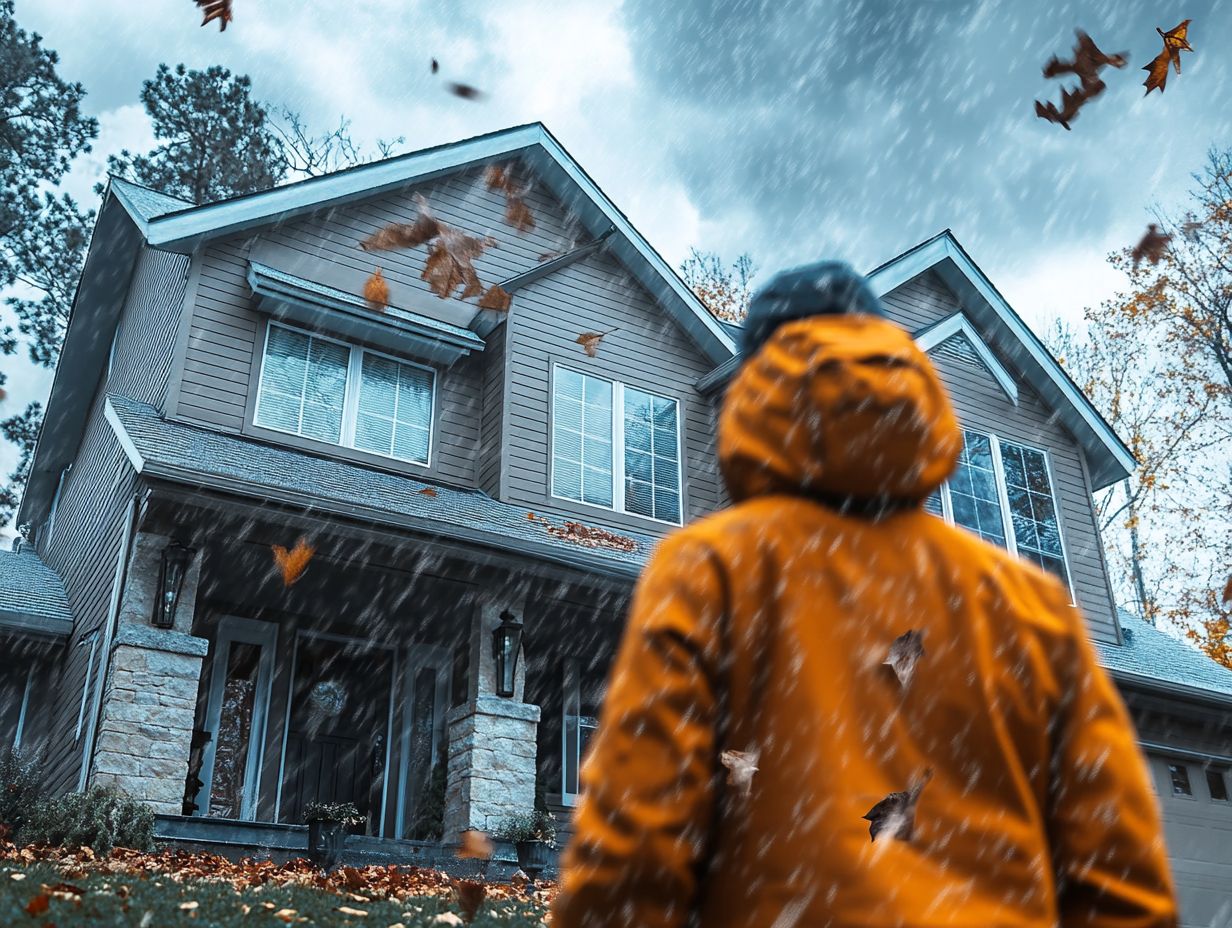
Weather can significantly impact home inspections. Extreme weather can hinder the inspector’s assessment and may even require rescheduling.
How Does Rain Affect Home Inspections?
Rain can complicate a home inspection in several ways. It can restrict the inspector’s access to the exterior, roof, and gutters. However, it may also reveal leaks or water damage that aren’t visible in dry conditions.
Can Home Inspections Be Done During Extreme Weather?
Generally, it’s not advisable to conduct a home inspection during extreme weather, like heavy rain, snow, or high winds. Such conditions can make it unsafe for inspectors and hinder accurate assessments.
Does Weather Affect Inspection Results?
Yes, weather can influence inspection outcomes. Severe weather may prevent inspectors from reaching some areas, or it might uncover issues that are hidden in normal weather conditions. Always consider this when reviewing your inspection report.
How Does Hot Weather Affect Home Inspections?
Hot weather makes it uncomfortable for inspectors to spend extended time in attics or other unconditioned spaces. It can also cause building materials to expand and contract, impacting the home’s overall condition.
Can a Home Inspection Be Rescheduled Due to Extreme Weather?
In cases of severe weather, rescheduling a home inspection is often necessary to ensure safety and accuracy. Discuss this possibility with your inspector to make the necessary arrangements for a thorough and safe inspection.


